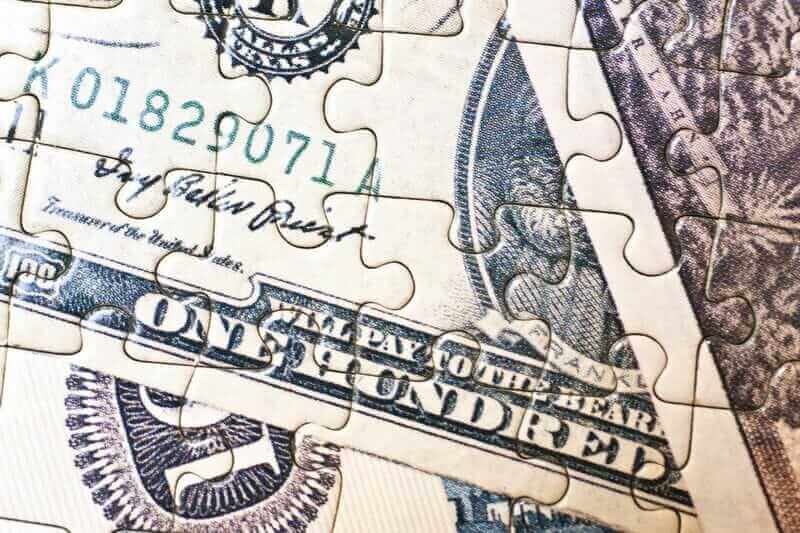
The dollar index (DXY00) on Thursday fell by -0.30%. The dollar gave up an early advance Thursday and fell moderately after US weekly jobless claims rose more than expected to an 8-1/2 month high, a dovish factor for Fed policy. The dollar was also weighed down Thursday by a decline in T-note yields. The dollar on Thursday initially moved higher when the British pound (^GBPUSD) tumbled to a 2-week low after BOE Governor Baily signaled the BOE may cut interest rates sharper than the markets expect.
US weekly initial unemployment claims rose +22,000 to an 8-1/2 month high of 231,000, showing a weaker labor market than expectations of 212,000.
Hawkish comments Thursday from San Francisco Fed President Daly were supportive of the dollar when she said interest rates are currently restraining the economy, but it may take "more time" to return inflation to the Fed's goal.
The markets are discounting the chances for a -25 bp rate cut at 10% for the June 11-12 FOMC meeting and 36% for the following meeting on July 30-31.
EUR/USD (^EURUSD) on Thursday rose by +0.32%. The euro rebounded from overnight losses Thursday and posted moderate gains. Thursday’s jump in US weekly jobless claims to an 8-1/2 month high weighed on the dollar and sparked short covering in the euro. Also, hawkish comments Thursday from ECB Vice President Guindos boosted the euro when he said he sees Europe’s economic growth “gaining momentum,” and the ECB won’t commit to what will happen beyond its planned June rate cut.
Swaps are discounting the chances of a -25 bp rate cut by the ECB at 94% for its next meeting on June 6.
USD/JPY (^USDJPY) on Thursday fell by -0.05%. The yen recovered from early losses on Thursday and moved slightly higher on a decline in T-note yields. The yen also found support from the summary of the Apr 25-26 BOJ meeting showed BOJ board members were considering the potential for faster rate hikes if the weak yen worsened the inflation outlook.
The yen on Thursday initially moved lower on speculation that Japanese authorities won’t intervene again in the forex market anytime soon to support the yen after Masato Kanda, Japan’s top currency official, said Tuesday that the government doesn’t need to intervene in the forex market if market movements are orderly.
Wage pressures in Japan are falling and are dovish for BOJ policy as Mar labor cash earnings rose +0.6% y/y, weaker than expectations of +1.4% y/y. Also, Mar real cash earnings fell -2.5% y/y, weaker than expectations of -1.4% y/y and the largest decline in 4 months.
The Japan Mar leading index CI fell -0.7 to 111.4, a smaller decline than expectations of 111.2.
The summary of the April 25-26 BOJ policy meeting shows board members are looking at the impact of yen weakness on inflation and the potential for faster interest rate hikes as a result. The summary said, "If underlying inflation continues to deviate upward from the baseline scenario against the backdrop of a weaker yen, it is quite possible that the pace of monetary policy normalization will increase."
Swaps are pricing in the chances for a +10 bp rate increase by the BOJ at 36% for the June 14 meeting.
June gold (GCM4) Thursday closed up +18.0 (+0.78%), and July silver (SIN24) closed up +0.764 (+2.77%). Precious metals prices closed higher on Thursday, with gold posting a 1-week high and silver climbing to a 2-week high. A weaker dollar Thursday was supportive of metals prices. Precious metals also garnered support from Thursday’s US initial unemployment report that showed jobless claims rose to an 8-1/2 month high, a sign of weakness in the labor market that could push the Fed to cut interest rates. In addition, ongoing Middle East tensions support safe-haven demand for precious metals. Gold prices climbed on increased demand as a store of value Thursday when BOE Governor Baily signaled the BOE may cut interest rates sharper than the markets expect. Silver prices rose Thursday on signs of stronger industrial metals demand in China after Chinese trade news showed China’s Apr exports and imports rose more than expected.
Gains in precious metals were limited Thursday after the April 25-26 BOJ policy meeting summary showed that BOJ board members are considering a faster pace of interest rate hikes if the weak yen worsens the inflation outlook. Also, fund liquidation of gold holdings is negative for gold prices after long gold holdings in ETFs fell to a 4-1/2 year low Wednesday.
On the date of publication, Rich Asplund did not have (either directly or indirectly) positions in any of the securities mentioned in this article. All information and data in this article is solely for informational purposes. For more information please view the Barchart Disclosure Policy here.






